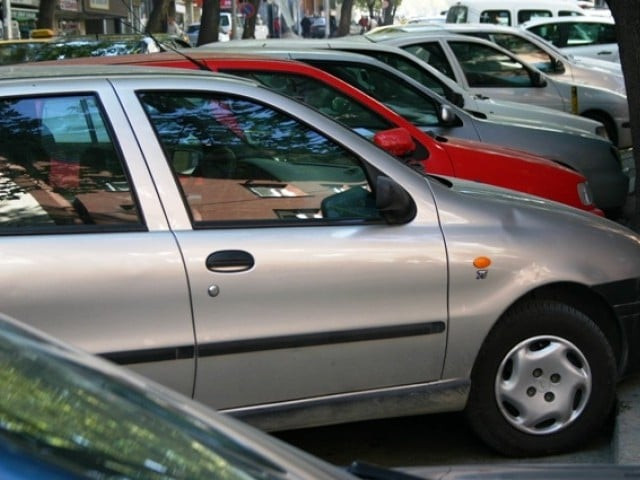Auto policy: Local industry unimpressed with government’s plan
Consistent long-term policy a must to become competitive, says analyst

Consistent long-term policy a must to become competitive, says analyst. PHOTO: FILE
“Pakistan’s first auto-policy was introduced for 2007-2012 with the objective to produce 500,000 cars a year, but a sudden increase in age limit of imported cars has not only hurt the local industry but also closed gates for new investment and entrants,” they said.
“If we look at the trend of automotive industry policies in ASEAN countries, it reflects some key points with regards to the long-term vision and consistency. They have protected their industry, given incentives, ultimately increasing production base. The recent phase clearly depicts their vision of producing eco-cars with stricter emission controls,” said an auto industry analyst.
Read: Consumer interest overlooked in new auto policy
“Malaysia, under its green initiative, announced ‘National Auto Policy 2014’ with the target to produce Energy Efficient Vehicles, while Indonesia is also promoting low cost green cars with low carbon emission.
“Thailand has ‘Vision 2021’ to transform the country into a ‘global green automotive production base’ with strong domestic supply chains; yet here we are still looking for a rational policy to give due boost to our industry,” added the analyst.
The Thailand local auto industry, under ‘Vision 2021’ will develop testing, research and development centres, automotive information centres and an automotive academy, while their government will provide the policy integration and policy research support.
“In Pakistan, on the contrary, the government is only after cosmetic measures. They do not give due support to the local industry and stakeholders are not consulted before finalising policy,” added the analyst.
He said the new auto industry development policy (AIDP-II) was being fine-tuned without incorporating most recommendations of the representative bodies. “Vested interests are working rigorously to influence the policy.”
Read: How to tackle challenges: New auto policy – no change on horizon
To compete with the changing environment and regional countries, we need to have a consistent and long term policy, offering benefits to local players and new investors, he remarked.
Published in The Express Tribune, September 19th, 2015.
Like Business on Facebook, follow @TribuneBiz on Twitter to stay informed and join in the conversation.


















COMMENTS
Comments are moderated and generally will be posted if they are on-topic and not abusive.
For more information, please see our Comments FAQ